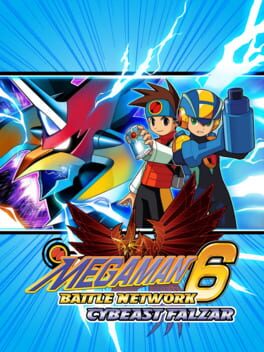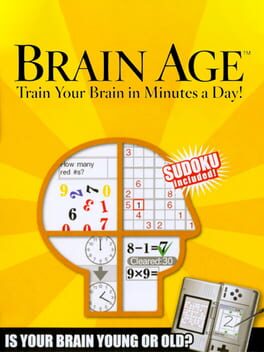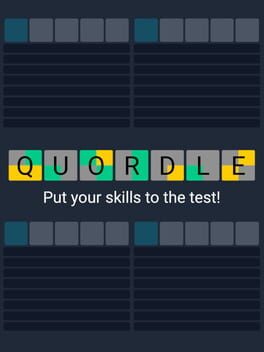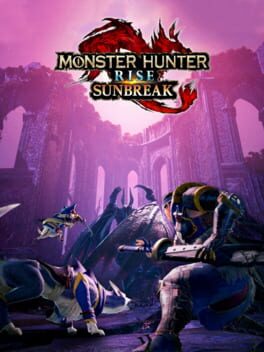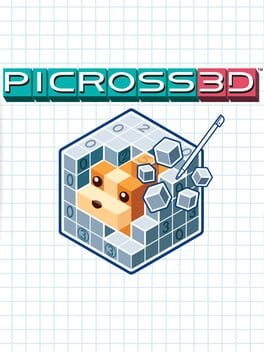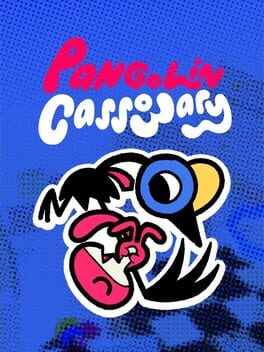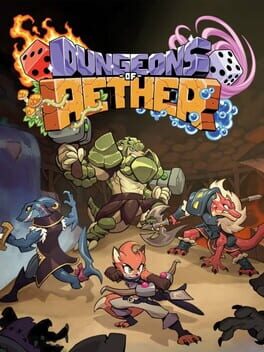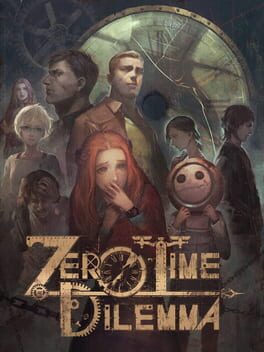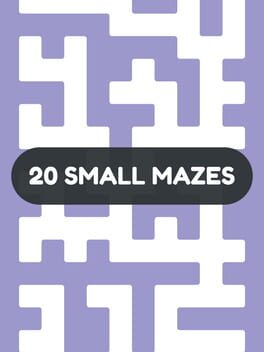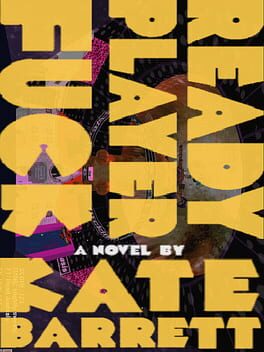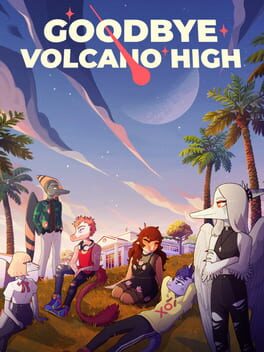RaffiTheOwl
It's perhaps a condemnation of this series that this is only among the worst-written BN games. Where previous games explored ways a near-future society could look and the cast of kids had fun interactions building narrative arcs, BN6 is just full shonen nonsense. Its writing rarely demonstrates any of the care or joy that I'm certain went into it, unlike the time-crunch panic constantly evident in its creative decisions. The story is an unrewarding slog and the side-content is actively nothing.
And yet, the fight mechanics are better than they've ever been. It reminds me of Quake II, actually - another game whose singleplayer experience was poor but kicked ass as a multiplayer game. Quake II was creatively barren where BN6 is rife with legitimately interesting ideas (Copybots! Playing as other Navis! alright that's it) that get maybe 30% of the way there. But they're both damn fun to play with others! Nearly two decades later and BN6 still has a competitive scene - one that survived the colossal lull where Capcom barely acknowledged the spinoff series' existence.
I can't recommend playing this unless you're a BN series diehard (in which case, you probably already have) or you're a sweaty tryhard with one or more friends playing alongside you and NetBattling you at every turn. Narratively, it's disappointing the series went out with a whimper - but the sterling fight mechanics keeping the MMBN legacy alive makes this a bittersweet entry.
Played on MMBN Legacy Collection live on [The Neon Caster's channel]
And yet, the fight mechanics are better than they've ever been. It reminds me of Quake II, actually - another game whose singleplayer experience was poor but kicked ass as a multiplayer game. Quake II was creatively barren where BN6 is rife with legitimately interesting ideas (Copybots! Playing as other Navis! alright that's it) that get maybe 30% of the way there. But they're both damn fun to play with others! Nearly two decades later and BN6 still has a competitive scene - one that survived the colossal lull where Capcom barely acknowledged the spinoff series' existence.
I can't recommend playing this unless you're a BN series diehard (in which case, you probably already have) or you're a sweaty tryhard with one or more friends playing alongside you and NetBattling you at every turn. Narratively, it's disappointing the series went out with a whimper - but the sterling fight mechanics keeping the MMBN legacy alive makes this a bittersweet entry.
Played on MMBN Legacy Collection live on [The Neon Caster's channel]
There's something inexplicably compelling about Brain Age. I think it has to be the presentation, for better and worse. The charming drawings and Dr. Kawashima's reserved quirkiness add life & personality. However, the academic framing gives the busywork an unearned air of legitimacy. Excelling at Brain Age's tasks satisfies in the same ways scholastic success can, which, frankly, sucks considering how academically valueless Brain Age's "training" is.
2022
Another competently-executed web-based "puzzle" game. It gets a very slight edge on some of its contemporaries for the ways it can inspire thinking about other games, mainly in comparing art styles and reflecting on why you know that one dirt texture by heart. Still almost entirely in the time-waster category; any meaningful reflection will be vastly overshadowed by time spent guessing.
2022
2023
A perfectly passable time-waster for those with too much Pokemon brainrot. The fun part (maximizing your Uniqueness score by selecting options you think players won't choose) comes second to the Other Part (desperately trying to remember which friendship-evolving mon can learn Shadow Ball). Not worth sinking any meaningful time into.
Sunbreak refines Rise's mechanics with some nice quality-of-life improvements, and swapping out Anime Feudal Japan for Anime Western Fantasy is a nice change-up. There's a bit more emphasis and effort put into the writing, which makes it disappointing that it ultimately takes no risks. Also disappointing that all of the new, interesting mechanics are basically all superfluous because of how damn easy the game is. Still, the monster designs are broadly fantastic, the new areas are fun to explore, and the slight extra emphasis on environmental interactions is sorely appreciated.
2009
Nice presentation only goes so far when the core puzzle mechanic boils down to comparing numbers. (And not the kind of cause-and-effect comparisons in Minesweeper-esque puzzle games like Tametsi.) Maybe the harder puzzles require logic or more intense thought - I only made it to Level 10 of Easy, as there are tons of puzzles and no way to skip ahead in difficulty. Anyone looking for a low-challenge puzzle game that still has a pretense of pressure could do worse than this, especially for things easy to emulate on phones & play with two thumbs.
2024
A cute & short 3D platformer with a simple, decently-explored central mechanic. Its level design generally mitigates the inherently finicky nature of judging trajectory. I didn't find it compelling enough to 100%, but I enjoyed my time with it, and definitely appreciated the attention to two charismatic endangered species.
2023
Great aesthetics, fun character writing, and a predictable but inoffensive plot - at least, from what I saw. I dropped it partway into Chapter 4 as it was just too tedious.
Wading through all the available options each turn to figure out the correct move - and there is almost always a correct move - isn't especially engaging. That's mostly because the correct move often boils down to a purely defensive play, which doesn't progress the game state at all and boils down to "see if next turn's dice draft is more advantageous." Attempts to vary this formula don't go far enough, and by the end of the third chapter (of six!), I felt like I'd seen more than enough of what the game had to offer.
If I stopped right before a huge twist that invalidates everything I had to say, please let me know - I want to like this game. I really like the Aether Team, and this game's core mechanic is clever. Maybe this is the fate of a game borne out of a celebrated itch.io game jam entry - a strong start that peters out far too early, unable to stretch its progenitor's excitement into a full game.
Wading through all the available options each turn to figure out the correct move - and there is almost always a correct move - isn't especially engaging. That's mostly because the correct move often boils down to a purely defensive play, which doesn't progress the game state at all and boils down to "see if next turn's dice draft is more advantageous." Attempts to vary this formula don't go far enough, and by the end of the third chapter (of six!), I felt like I'd seen more than enough of what the game had to offer.
If I stopped right before a huge twist that invalidates everything I had to say, please let me know - I want to like this game. I really like the Aether Team, and this game's core mechanic is clever. Maybe this is the fate of a game borne out of a celebrated itch.io game jam entry - a strong start that peters out far too early, unable to stretch its progenitor's excitement into a full game.
A mess of a trilogy closer, downgraded on every front from its progenitors, unable to meet its high ambitions. It's not without merit, but it's extremely hit or miss. Its approach to chronologically ambiguous storytelling is maybe its only unmarred highlight. Its character beats, puzzles, and twists (of which there are many) peak at "not as well done in the previous two games" and bottom out unfathomably low.
Its attempt to tell a much more harrowing tale than the previous two games is seriously undercut by its mawkish writing, awkward character animations, and stiff voice acting (which reeks of poor direction, not a slight on the VA's talent). Because of these, it often ends up as a farce - comic when it grasps for tragedy, and something to laugh at when it asks the player to laugh with it.
I held hope that Zero Time Dilemma would reward enduring until the end. I wanted to know how ZTD would try to justify the time spent playing it. Unfortunately, that desire was left unfulfilled. No puzzle left a deep, lasting sense of satisfaction. No character development or plot arc gave any kind of meaningful insight. No twist or mystery electrified my mind racing with excitement or fascination. All that it left was a beleaguered shrug of exhaustion: "Well, I guess that happened."
Life is simply unfair, don't you think?
Its attempt to tell a much more harrowing tale than the previous two games is seriously undercut by its mawkish writing, awkward character animations, and stiff voice acting (which reeks of poor direction, not a slight on the VA's talent). Because of these, it often ends up as a farce - comic when it grasps for tragedy, and something to laugh at when it asks the player to laugh with it.
I held hope that Zero Time Dilemma would reward enduring until the end. I wanted to know how ZTD would try to justify the time spent playing it. Unfortunately, that desire was left unfulfilled. No puzzle left a deep, lasting sense of satisfaction. No character development or plot arc gave any kind of meaningful insight. No twist or mystery electrified my mind racing with excitement or fascination. All that it left was a beleaguered shrug of exhaustion: "Well, I guess that happened."
Life is simply unfair, don't you think?
2023
This review contains spoilers
High-effort interactive creepypasta that's clearly (and unashamedly) very inspired by House of Leaves. The packaged writing is unimpressive & uninspired, and its tricks are a bit spoiled if you're aware of other things that use invisible, subtle warps to create the illusion of paradoxical geometry. I don't want to be overly harsh - it's a fun way to spend half an hour, well worth a spin for those intrigued.
2024
2024
More of a toy than a game, and more of a novelty than anything artistic. The best use of an LLM in a game I've seen yet, which is more of an indictment of its use elsewhere. It's genuinely fun to tinker with for a bit, and the unpredictability of crafting's results can be as fun as it is frustrating. Mainly, however, I'm left with the results that disappointed me - the answers that say more about the LLM's training data (which, presumably, is The Internet). I got the t-slur out of nowhere before it gave Transgender. Obama + Religion = Muslim. And boy, the speed with which it will turn Muslim + anything into terrorism - all said, the racism and transphobia that it's happy to throw at you with innocuous prompts is its only memorable aspect, a sad reminder of the (English-speaking) internet's id.
2017
2023
Goodbye Volcano High had me worried at first. It started slow with familiar, somewhat tropey high school drama. However, it picked up momentum and weight as it went. The final third of the game solidly brings it home, hitting with emotional resonance to our own pre-apocalypse in a way that everything else I've experienced would be too cowardly to not subvert. The shaky start and occasional misses were well worth the impact it left. 🌠
